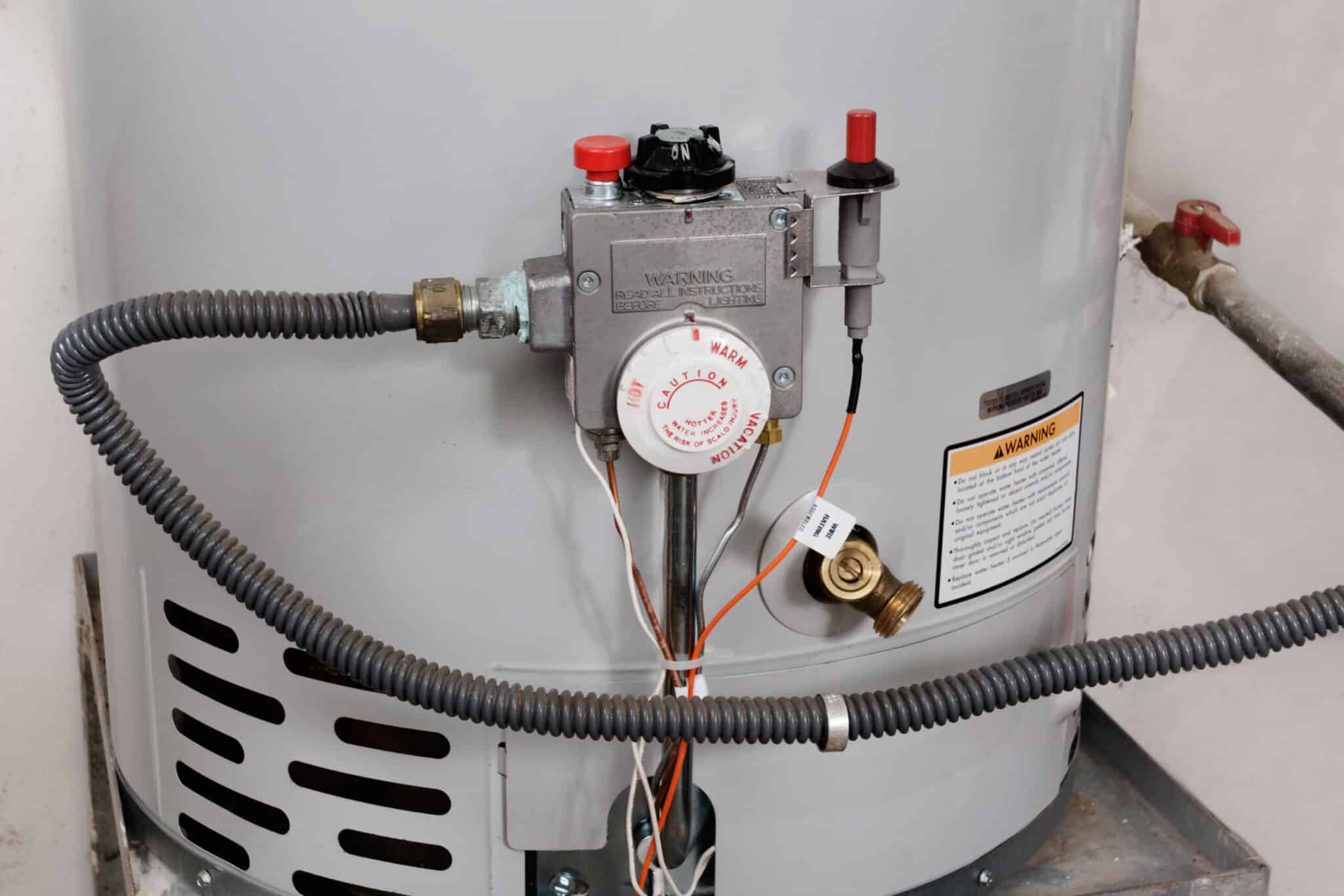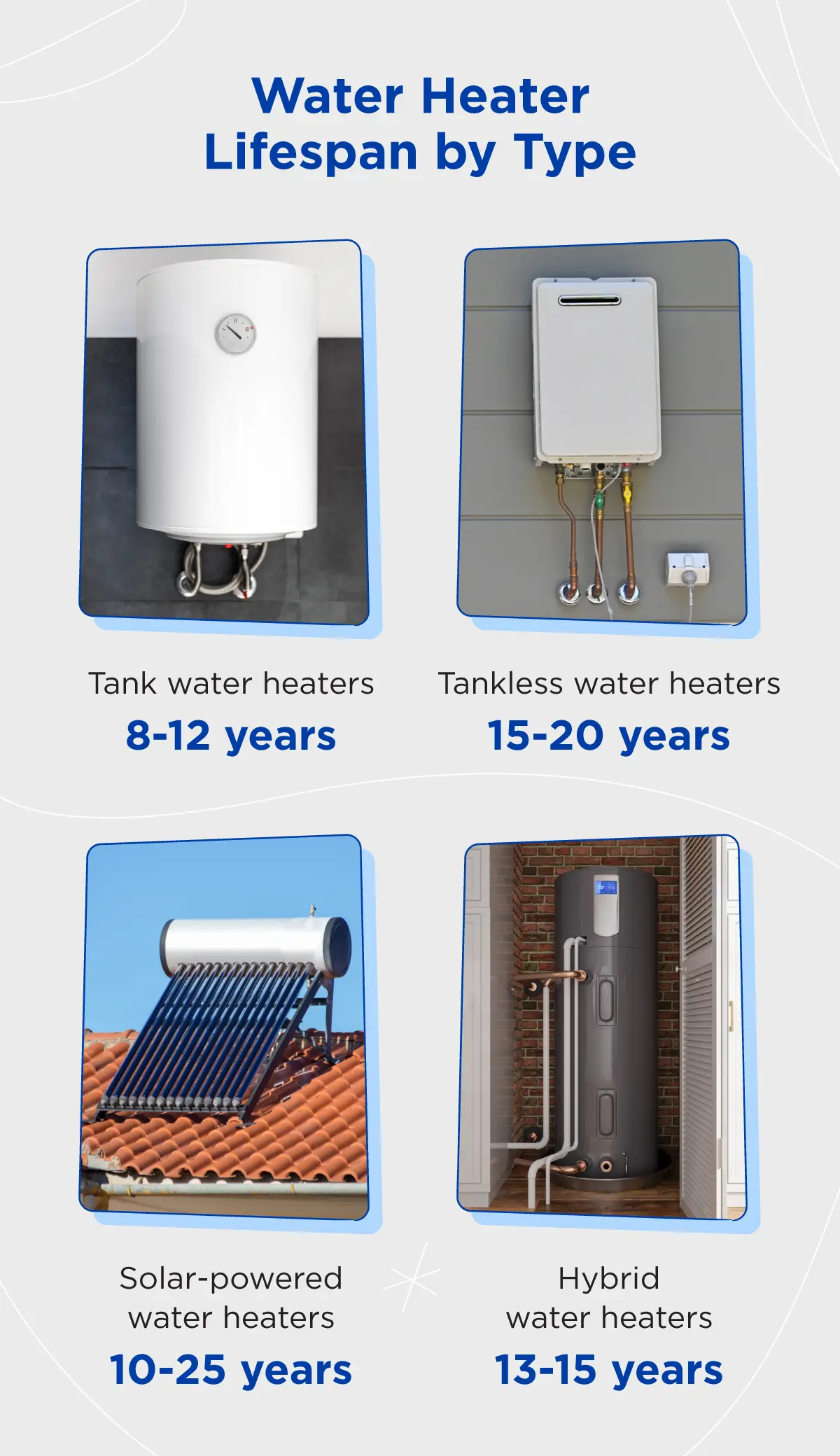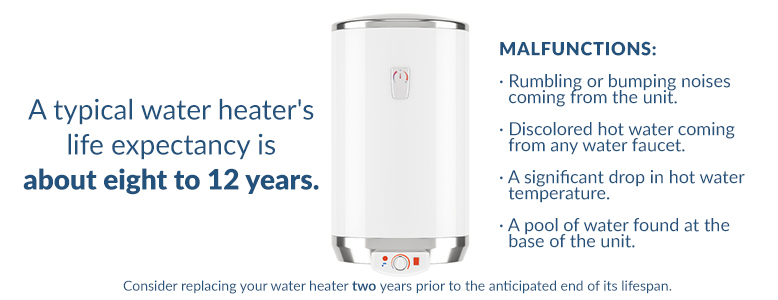Have you ever wondered how long your water heater will last? Whether you’re facing cold showers or planning home upgrades, knowing the average life of a water heater can save you time and money.
Imagine the comfort of never having to worry about unexpected cold spells during your morning routine. This article is your guide to understanding the lifespan of a water heater, helping you make informed decisions about maintenance and replacement. You’ll discover practical tips to extend its life and recognize when it’s time for a change.
Get ready to empower yourself with insights that promise peace of mind and uninterrupted warmth in your home. Don’t miss out on these valuable insights—read on to ensure you’re never caught off guard by a failing water heater!
Page Contents
Types Of Water Heaters
Tank water heaters are common in many homes. They store hot water in a large tank. These heaters can last around 10 to 15 years. Regular maintenance helps them work well. Sediment can build up inside. Cleaning the tank often is important. It helps the heater last longer.
Tankless heaters heat water on demand. They do not store water. This type is energy efficient. They can last more than 20 years. Proper care is needed. Hard water can hurt them. Use water softeners if possible. They are smaller than tank heaters. Easy to fit in small spaces.
Hybrid heaters use heat pumps. They save energy by using air warmth. Their lifespan is about 13 to 15 years. Regular checks keep them running well. Filters need cleaning often. They work best in warm areas. Cold places can affect efficiency.
Solar heaters use sunlight to heat water. They are eco-friendly. Their life can reach up to 20 years. Panels need regular cleaning. They work well in sunny regions. Cloudy days can lower efficiency. Backup systems are useful for these days.
Factors Influencing Longevity
Good installation means a longer life for water heaters. Proper connections are key. Wrong setup can cause issues. Leaks might happen. Parts may wear out faster. Trained professionals should install. They know the best practices. Correct setup saves money later.
Water quality affects heaters. Hard water is tough on parts. Minerals build up inside. Scale can form. Soft water is better. Filters can help. Regular checks are good. Clean systems last longer. Dirty water can harm heaters.
Daily use impacts heater life. More showers mean more wear. High demand shortens life. Hot water for long periods is hard on heaters. Balanced use helps them last. Extra usage needs extra care. Moderate use extends life.
Regular checks keep heaters healthy. Cleaning is important. Sediment removal is key. Parts need checks often. Maintenance prevents big problems. Simple tasks can save money. Annual check-ups are wise. Care now means fewer issues later.
Signs Of A Failing Water Heater
Water turns hot, then cold. It’s a common issue. Heaters should keep water warm. Trouble starts with temperature changes. A failing heater often can’t keep up. Hot showers might turn chilly. This can be annoying. It’s a sign to check the heater.
Heaters shouldn’t make loud noises. Clunking or banging sounds are bad. These noises mean trouble inside. Sediment buildup often causes this. It rattles and bangs. The heater works harder. It can wear out faster this way.
Water should be clear and clean. Rusty water hints at a problem. Rust inside the tank is a red flag. It can mean the tank is corroding. Rusty water isn’t safe to use. It’s time to inspect the heater.
Leaks around the heater are serious. Water on the floor isn’t normal. Moisture or puddles mean the tank might be leaking. This could lead to bigger issues. It’s a sign to get help. Fixing leaks early is crucial.

Credit: callfourseasons.com
Extending The Life Of Your Water Heater
Routine maintenance is important for water heaters. Check the heater once a year. Look for leaks and rust. Remove any dust around it. Make sure the vents are clean. This keeps the heater working well.
Temperature settings matter for water heaters. Set the heater to 120 degrees. This saves energy. It also helps the heater last longer. Higher settings can damage the heater. Check the dial regularly.
Anode rods protect water heaters from rust. They need replacement every few years. Check the rod each year. Replace it if it’s worn. This keeps the heater safe and strong.
Flushing the tank is easy. Do it once a year. It removes sediment. Sediment can make heaters slow. Use a hose to drain the tank. This keeps the heater clean.
When To Replace Your Water Heater
Water heaters often last about 10 to 15 years. Older units may not work well. Old heaters can cause higher bills. Look for signs like rusty water or strange noises. These signals show it’s time for a change.
New heaters use less energy. This saves money on bills. Old heaters use more power. They cost more in the long run. Upgrading can reduce your monthly costs.
Modern heaters have smart features. These features make life easy. They adjust heat on their own. Some connect to your phone. This means you can control them from anywhere.
Newer models are eco-friendly. They use less energy and water. This helps the planet. Old heaters waste resources. Changing them reduces your carbon footprint.

Credit: www.mrrooter.com
Choosing The Right Water Heater
Think about how many people live at home. Big families need bigger water heaters. Small homes may do with smaller ones. Space matters too. Measure your storage area. Choose a heater that fits. Some heaters heat water fast. Others save power. Decide which is best for your home.
Energy ratings help you save money. High-rated heaters use less electricity. They cost more but save in the long run. Look for Energy Star labels. They show the heater is good for the planet. Saving energy means saving money on bills.
Cheap heaters may not last long. Good ones might cost more. But they last longer. Think about maintenance costs too. Sometimes, spending more now saves money later. A long-lasting heater is worth the price.
Installing a heater is tricky. Professional help makes it easier. They know what to do. Mistakes can be expensive. Experts do it right. They make sure everything works well. Safe installation is important for your family.

Credit: www.mrrooter.com
Conclusion
A water heater’s lifespan varies by type and maintenance. Tank heaters last 8 to 12 years. Tankless models can reach up to 20 years. Regular upkeep extends life. Flushing the tank helps prevent sediment buildup. Checking the anode rod is crucial for longevity.
Simple, routine checks make a big difference. Replace when efficiency drops or leaks appear. Consider energy-efficient models for future savings. A well-cared-for water heater serves you longer. Keep it in top shape, and enjoy hot water without worry.
